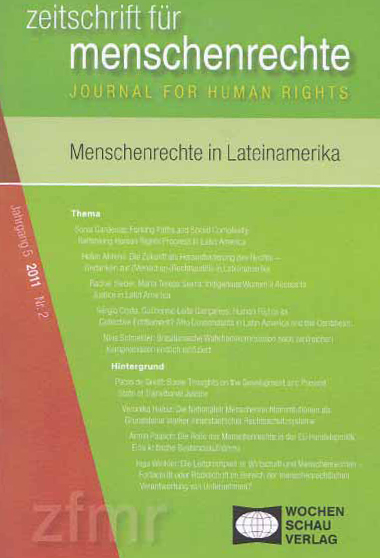
Indigenous peoples in Latin America suffer systematic lack of access to justice in state legal systems Structural exclusion and discrimination particularly affect indigenous women. In this article we analyze the challenges and benefits for indigenous women when they try to access justice in indigenous legal systems. We emphasize the need to consider normative frameworks, legal awareness, access to appropriate justice forums and the achievement of satisfactory remedies. While the reasons for lack of access to justice or the barriers involved in specific cases depend on the context, we identify a number of common contributing factors: poverty, discrimination and racism, violence exercised by state and non-state actors and lack of women’s participation in public life. We suggest that the gradual recognition of legal pluralism, as well as the incorporation of international standards on women’s rights within statutory law, is shaping prospects for improved access to justice for indigenous women across the continent. However, we conclude that their demands for gender equality and more dignified lives can only be met when indigenous peoples collectives rights are guaranteed and respected.
(2011) with María Teresa Sierra, “Indigenous Women’s Access to Justice in Latin America,” Journal for Human Rights/ Menschenrechte in Lateinamerika Vol. 5 (2): 36-51.